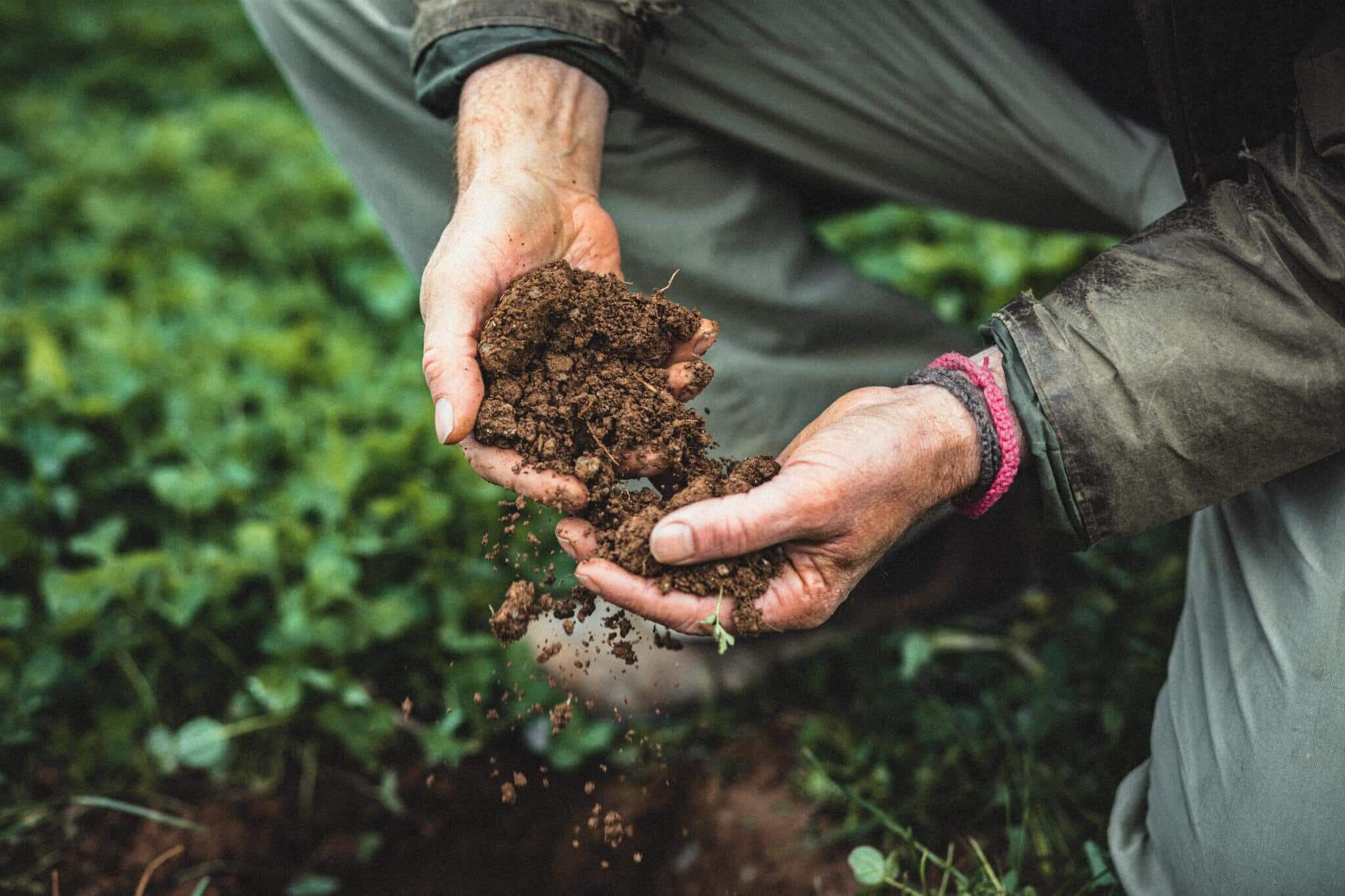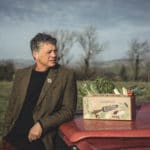Here at the farm, brooding heat and humidity built up throughout early September – until the 16th, when the tension was broken by the mother of all storms. Two hours of sheet lightning and house-rattling thunder came with 90mm of rain, blocking roads with water and silt. Swollen streams turned brown, laden with suspended soil – and a brown plume could be seen spreading from the estuary mouth out to sea, as another part of our green and pleasant land was washed away forever.
Early September is when farmers sow the grass, clover leys, and green manures which will protect our soil from heavy rain over winter. These small seeds require a fine seed bed, often rolled firm to give good contact between seed and soil. However, until the seeds have had a chance to establish, such seed beds will slow the penetration of rain into the soil and actually encourage surface run-off. To make matters worse, the small soil particles are vulnerable to damage from large rain drops and suspension in water. In this storm, our and our neighbours’ farms suffered soil loss from a number of fields, where the seeds were not yet established enough to protect and bind the surface.
My first 20 years of farming saw only two storms that carried away substantial soil. Now storms come every year, with increasing ferocity. Climate change is here – and if we are going to retain our topsoil to feed future generations, we must re-evaluate traditional farming practices.
At Riverford, over the last ten years, we have stopped cropping vulnerable fields, introduced grass breaks to reduce surface run-off, and created banks to hold water in the fields and allow it to deposit its load of soil before leaving. We have rewilded wide strips by water courses, and always do our best to keep the ground covered with vegetation. Longer term, we are planting nuts and experimenting with other perennial (growing back every year) crops, to reduce the need to sow vulnerable seed beds annually.
But the transition to more climate-resilient agriculture requires investment; it cannot be delivered by farms so starved of cash and security that they cannot look beyond the current season to invest in the future. Please support British family farmers by signing Riverford’s petition to curb supermarkets’ unfair buying practices. Visit GetFairAboutFarming.co.uk.
















On greensand here. Continuous cereals have destroyed the structure and organic content.
Washing away every year.
Heartbreaking